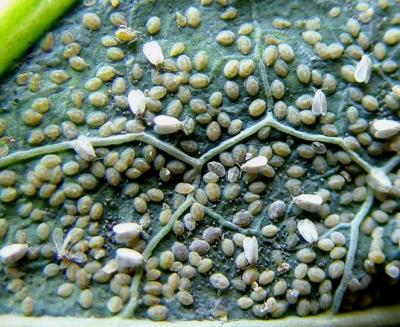
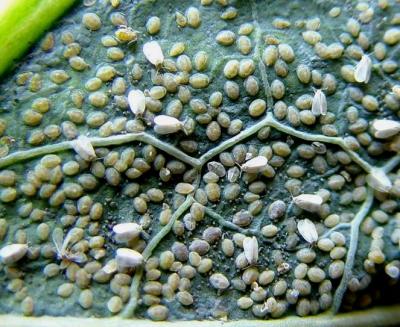
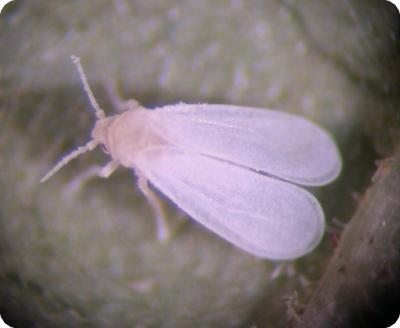
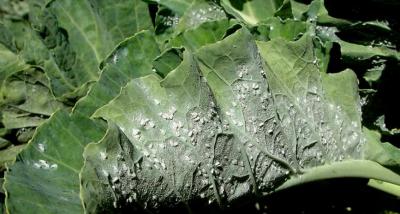
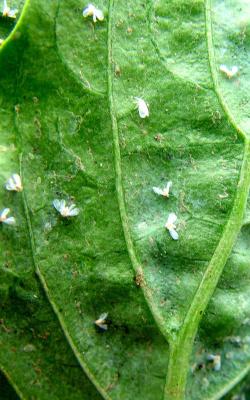
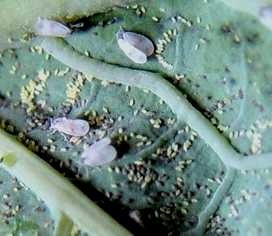
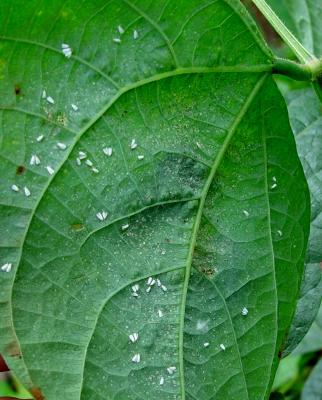
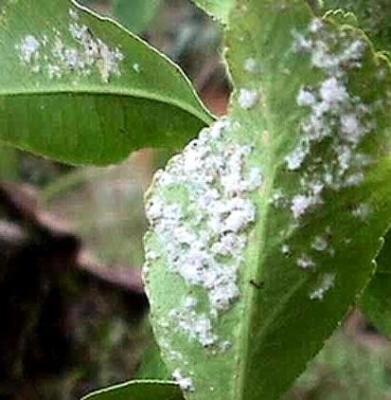
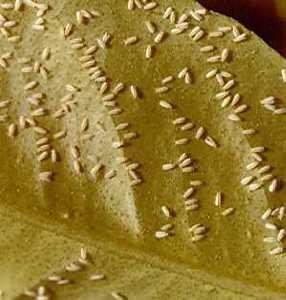
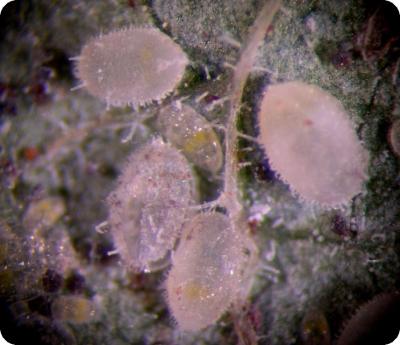
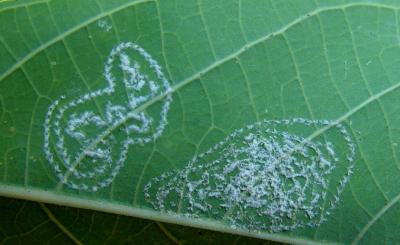
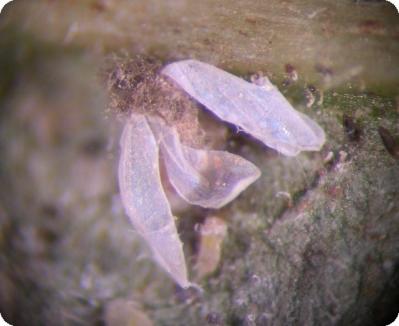
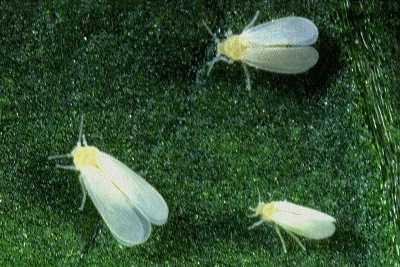
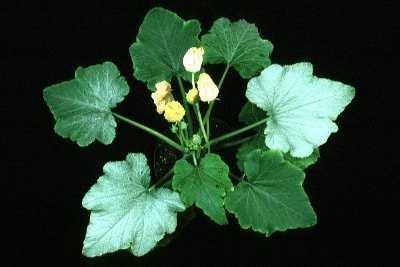
Synthetic pesticides
Chemical control of whiteflies is troublesome. Pesticides are often inefficient since the immature stages are covered by wax. A systemic pesticide will work best. The addition of soap to the spray solution will help the spray to spread on the waxy wings of the whiteflies and to penetrate the waxy secretions produced by the nymphs. Even with effective pesticides, pest resurgence commonly occurs within a few weeks of application. The pesticide may not be effective against eggs or nymphs and repeated applications are needed. Moreover, whiteflies rapidly develop resistance to many pesticides. When chemical treatment is needed, it is very important to choose a proper product and application methods carefully. It is important to choose products that are not harmful to natural enemies. Rotation of pesticides is essential to minimise or delay development of resistance. Some pesticides reduce whitefly numbers to a great extent, but are often not effective in reducing the transmission and spread of virus. Combination of mineral oils and some insecticides give rapid control of whitefly adults and suppress virus transmission.
Aleurodicus disperses, Aleurothrixus floccosus, Aleyrodes proletella, Bemisia tabaci, Trialeurodes vaporariorum
